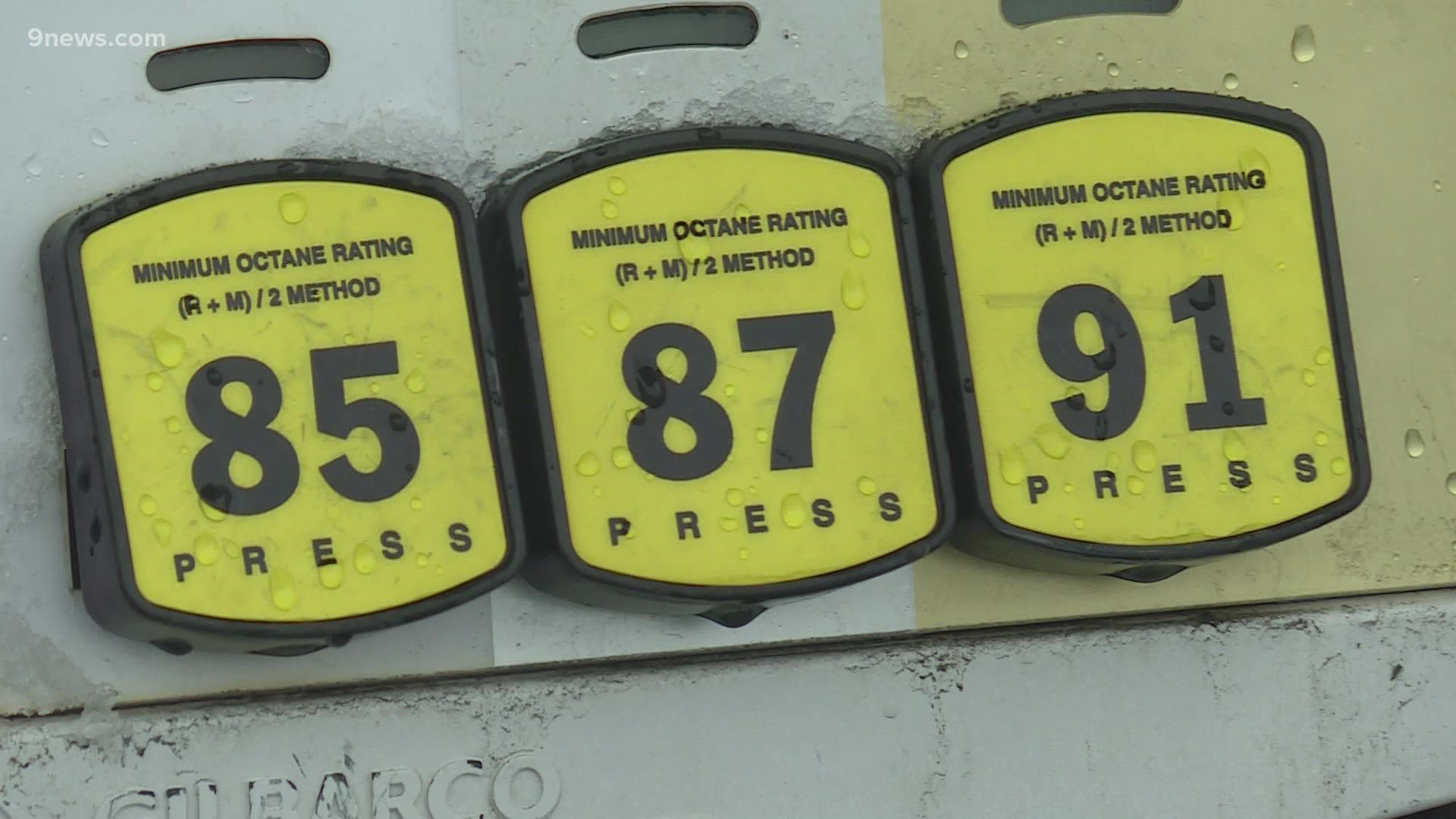Can You Mix 87 And 91 Gas?
Yes, you can mix 87 and 91 gas in your vehicle.

Credit: www.9news.com
Advantages Of Mixing 87 And 91 Gas
htmlMany drivers wonder whether it is safe to mix 87 and 91 gas, and the answer is yes. Mixing these two types of gasoline can actually have several advantages that can benefit your vehicle and your wallet.
Improved fuel efficiency: By blending 87 and 91 gas, you can achieve a gasoline with a higher octane rating, which can lead to improved fuel efficiency. Higher octane fuels can help prevent engine knocking and pinging, resulting in smoother operation and better mileage.
Enhanced engine performance: The combination of 87 and 91 gas can provide added power and performance to your engine. The higher octane rating can improve acceleration and overall engine responsiveness, allowing for a more enjoyable driving experience.
Cost-saving benefits: Mixing 87 and 91 gas can also be cost-effective. While 91 gas tends to be more expensive, blending it with 87 gas can help lower the overall cost per gallon. This can be particularly beneficial if your vehicle requires higher octane fuel but you want to save some money at the pump.
Considerations For Mixing 87 And 91 Gas
Understanding octane ratings is important when considering mixing 87 and 91 gas. Octane ratings indicate a fuel’s ability to resist engine knock. Higher octane fuel, such as 91, has a greater resistance to knock compared to lower octane fuels like 87.
While some vehicles specify a minimum octane rating, they may also be compatible with a lower octane fuel. Consult your vehicle’s manual or contact the manufacturer to determine the recommended fuel for your specific model.
Mixing 87 and 91 gas can be done, but it’s important to follow manufacturer recommendations to ensure optimal performance and avoid any potential engine damage.
Potential Issues With Mixing 87 And 91 Gas
Can You Mix 87 And 91 Gas?
Potential Issues with Mixing 87 and 91 Gas
Engine knocking and pinging: Mixing lower octane 87 gas with higher octane 91 gas can lead to engine knocking and pinging. These noises occur when the air-fuel mixture in the combustion chamber ignites prematurely, causing the piston to push against the still-rising cylinder pressure. This can result in reduced engine performance and potential damage over time.
Negative impact on emission control systems: Mixing different gas octanes can disrupt the precise calculations and adjustments made by the engine’s emission control systems. This can lead to increased emissions, potentially failing emission tests, and harming the environment.
Long-term effects on engine health: Consistently mixing 87 and 91 gas may compromise the engine’s overall health. The inconsistent performance of various octane levels can cause carbon deposits to accumulate, harming fuel injectors, valves, spark plugs, and other engine components. It is recommended to use the appropriate octane level consistently to maintain optimal engine performance and longevity.
Frequently Asked Questions Of Can You Mix 87 And 91 Gas?
Is It Bad To Mix Premium Gas With 87?
Mixing premium gas with 87 is not bad. However, it may not provide any benefit in terms of performance or fuel efficiency. It is best to follow the manufacturer’s recommendation for your specific vehicle.
Can You Put 91 In A Tank With 87?
Yes, you can mix 87 and 91 fuel in a tank. However, it is important to note that using a higher-octane fuel than your vehicle requires may not provide any additional benefits. Always refer to your vehicle’s owner manual for the recommended fuel type.
Is It Ok To Mix Fuel Octanes?
Yes, it is generally okay to mix fuel octanes. However, it is important to follow the manufacturer’s recommendations and not exceed the maximum octane level. Mixing fuels can help improve performance and save money, but it is best to consult with a professional if unsure.
Can I Mix 87 And 93 Octane Gas?
Mixing 87 and 93 octane gas is safe and won’t harm your car’s engine. However, it may slightly affect your vehicle’s performance and fuel efficiency. It’s recommended to use the octane grade specified in your car’s manual for optimal results.
Conclusion
Mixing 87 and 91 gas can be a tempting solution when faced with limited options, but it’s important to consider the potential risks. While both gasoline types are similar, their octane levels differ. Mixing them can lead to inefficient combustion and engine knocking, compromising your vehicle’s performance.
To maintain optimal engine health, it’s best to stick to the recommended octane level specified by your manufacturer. Remember, ensuring your engine’s longevity and efficiency is key.
